Herbs
- Chinese
- Drying Herbs
- Herb Garden
- Medicinal Herbs
- Natural Herbs
- Indoor Herb Garden
- Agrimony Herb
- Alfalfa
- Aloe Vera
- Angelica
- Aniseed
- Arnica
- Asafoetida
- Astragalus
- Bee Balm
- Boswellia
- Chamomile
- Cinnamon
- Damiana
- Dandelion
- Dill
- Dong Quai
- Elderberry
- Echinacea
- Ephedra
- Fennel
- Fenugreek
- Feverfew
- Fo Ti
- Garlic
- Gentian
- Ginger
- Ginkgo Biloba
- Ginseng
- Goldenseal
- Gotu Cola
- Guggul
- Hyssop
- Juniper
- Kava Kava
- Kudzu
- Lavender
- Lomatium
- Marshmallow
- Meadowsweet
- Nettle
- Milk Thistle
- Nutmeg
- Oregon Grape
- Parsley
- Pau d'arco
- Peppermint
- Phyllanthus
- Psyllium
- Pygeum
- Quince
- Red Clover
- Red Raspberry
- Rosemary
- Sage
- Sandalwood
- St John's Wort
- Valerian
- Herbs For Cancer
- Herbs for Cooking
- Herbs for Weight Loss
- Herbs for Relaxing
- Herbs for Diabetes
- Herbs for High Blood Pressure
- Herbs to Quit Smoking
- Herbal Life Nutrition
- Herbs for Colon Cleansing
- Natural Herbs for impotence
- Herbs for Pregnancy
- Natural Herbs for Menopause
- Herbs for Acne
- Ayurvedic Herbs
- Herbs for Cholesterol
- Herbal Breast Enhancement
- Herbal Cleansing Tea
- Herbal Abortion
Herbs Information - Natural Herbs for Good Health
Herbs act in almost magical and astonishing ways: spasms may relax, pains vainsh, constipation overcome, nervousness recede, headaches disappear, colds be banished, allergies counteracted, fevers controlled, blood flow arrested... the magic is endless.
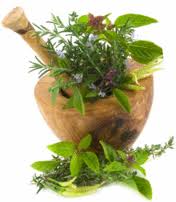
Since early Neanderthal man, plants and herbs have been used for healing purposes and maintaining good health. Even has medical science has progressed, methods and ideas based on herbal healing have sustained and grown in different countries, across different cultures, often being used in exactly the same way. For instance, bitter chamomile is used as digestive aid throughout the world.
Traditional herbal remedies have led scientists to the development of numerous 'modern' drugs; from aspirin, tranquilizers and to heart saving digitalis, establishing beyond doubt the efficiency of 'herbal medicine'. We also recommend learning about ayurveda and ayurvedic medicine including many ayurvedic remedies and herbs.
Using Herbs Safely
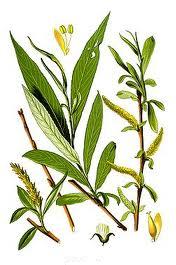
- Never exceed the manufacturer's recommended dose.
- Stop taking your herbal medicine if you suffer side-effects.
- Always seek professional advice if your symptoms persist.
- Do not take herbal medicines in pregnancy or when breast feeding, unless their safety has been established.
- If you are taking conventional medicine, or have any long-term medical condition, check with your doctor before taking a herbal medicine or supplement.
Recommended Herbs To Try
- Acai Berry - Acai is thought of as nature’s perfect energy fruit. It is packed full of amino acids, antioxidants and essential omega fatty acids. The good fats! Also contains lots of iron, fiber, and many other vitamins and minerals.
- Green Tea - The benefits of green tea in a human body are so remarkable that it is believed that the key to a longer and healthier life may just be brewing in your cup!
- White Tea With Acai - White tea is the least processed tea and has the highest antioxidant levels. It may be the supreme drink of health.
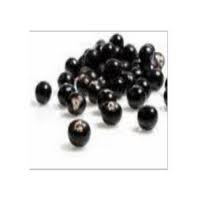
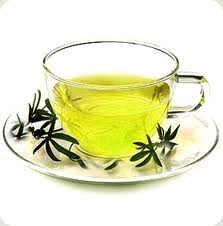
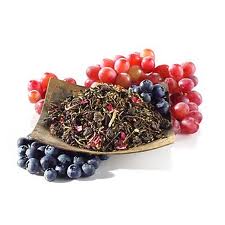
Your guide to herbs: A very useful chart on herbs
HERBS |
INDICATIONS
|
DOSAGE
|
SIDE EFFECTS
|
Bilberry |
Diabetic Retinopathy, Allergies, Cataracts, Varicose Veins |
80 - 160mg two to three times daily. Standardized to contain 240mg anthocyanidins |
None |
Borage Oil |
Arthritis, Atherosclerosis, High Cholesterol, PMS |
1000mg up to four times daily. Standardized to contain 240mg gamma linolenic acid |
None |
Boswellia |
Arthritis, Atherosclerosis, High Cholesterol, PMS |
400mg three times daily |
None |
Bromelain |
Inflammation, Sports Injuries, Respiratory Infections, Dysmenorrhea |
250-750mg three times daily on an empty stomach |
GI upset at larger doses |
Cranberry Extract |
Urinary Infection, Kidney Stone Prevention |
1 capsule twice daily Standardized to contain 11-12% quinic acid |
None |
Dong Quai |
Menopause, Menstrual Cramps, PMS |
500-1000mg three times daily. Photosensitivity at higher doses |
None |
Enchincea |
Common Cold, Viral Infection, Impaired Immune Function |
250mg two to four times daily Standardized to contain 3.5-4% total echinacosides |
None |
Evening Primrose Oil |
(See Borage Oil) |
Borage Oil has five times the GLA of Evening Primrose Oil |
|
Feverfew |
Migraine Headaches, Arthritis |
50mg twice daily Standardized to contain 0.2% parthenolides |
None |
Garlic |
Infections, High Cholesterol, High Blood Pressure, Diabetes |
300-600mg up to three times daily |
May cause GI irritation |
Ginger |
Morning or Motion Sickness, Vertigo, Arthritis, Nausea |
250-500mg up to three times daily Standardized to contain 0.8% essential oils |
Can cause GI irritation at high levels |
Ginkgo Biloba |
Cerebrovascular Insufficiency, Memory Loss, Dementia, Vascular Disorders |
60mg twice daily Standardized to contain 24% ginkgoflavonglycosides |
Rare incidence of GI upset and headache |
Ginseng, Panax |
Illness Recovery, Enhancement of Sexual Function, Mental & Physical Performance, Fatigue |
100mg one to three times daily Standardized to contain 7% ginsenosides |
At higher doses possible anxiety, irritability, breast pain, menstrual changes, hypertension, insomnia |
Ginseng, Siberian |
Stress, Fatigue, Atherosclerosis, Enhancement of Mental & Physical Performance |
100-200mg up to three time daily Standardized to contain 0.5% eleutheroside |
At higher doses possible insomnia, irritability, melancholy, anxiety |
Goldenseal |
Infections, Especially GI Parasitic & Mucous Membrane |
200mg up to three times daily. Standardized to contain 0.5% total Alkoloids calculated as hydrostine |
Higher doses may interfere with B vitamin metabolism-Not recommended during pregnancy |
Gotu Kola |
Cellulite, Wound Healing, Varicose Veins, Scleroderma |
60-120mg daily. Standardized to contain 60% asiatic and madecassic acids & 40% asiaticosides |
None |
Grapeseed Extract |
Diabetic Retinopathy, Macular Degeneration, Bruising, Peripheral Vascular Disease, Vascular Fragility |
50-100mg three times daily. Standardized to contain a procyanidolic value of 95 |
None |
Gugulipid |
Atherosclerosis, Elevated Cholesterol & Triglycerides |
25mg three times daily |
None |
Hawthorn |
Atherosclerosis, High Blood Pressure, Congestive Heart Failure, Angina |
120-240mg three times daily. Standardized to contain 1.8% vitexin - 4'-rhamnoside or 10% procyanidins |
None |
Licorice |
Allergies, PMS, Menopause, Peptic Ulcer |
380-760mg 20 minutes before meals. Delycyrrhizinated licorice (DLG) is preferred |
Can cause sodium retention, high blood pressure |
Milk Thistle |
Liver Disorders, Hepatitis Cirrhosis, Psoriasis |
100-200mg up to three times daily Standardized to contain 80% silymarin calculated as silibin |
None |
Saw Palmetto |
Benign Prostate Enlargement, Decreased Function of Testes |
160mg twice daily. Standardized to contain 85% to 95% fatty acids and sterols |
None |
St. John's Wort |
Depression, Anxiety, Insomnia |
150-300mg three times daily. Standardized to contain 0.14% hypericin |
At high levels can cause photosensitivity |
Valerian |
Insomnia, Anxiety, Intestinal Spasm, High Blood Pressure |
150-300mg one hour before sleep time. Standardized to contain 0.8% valerenic acids |
None |
